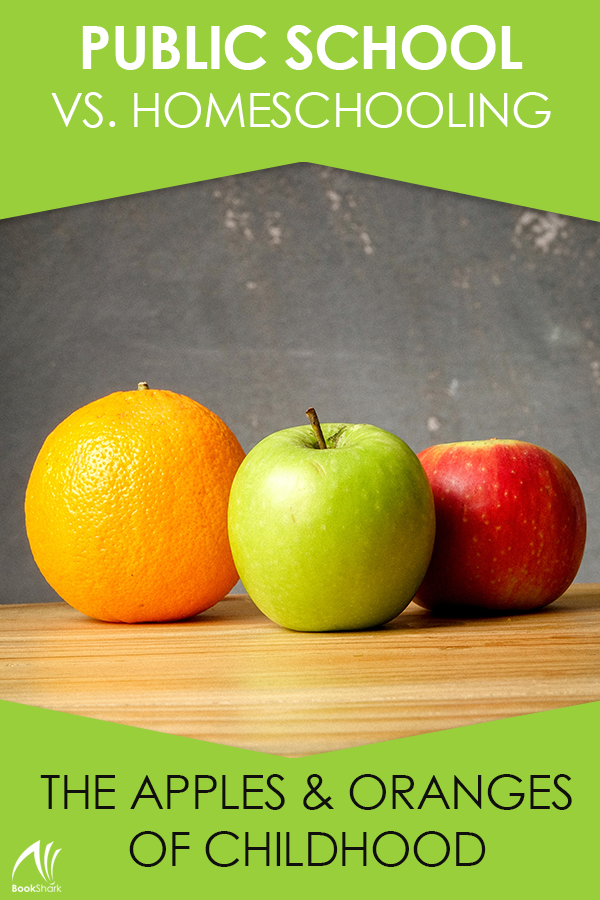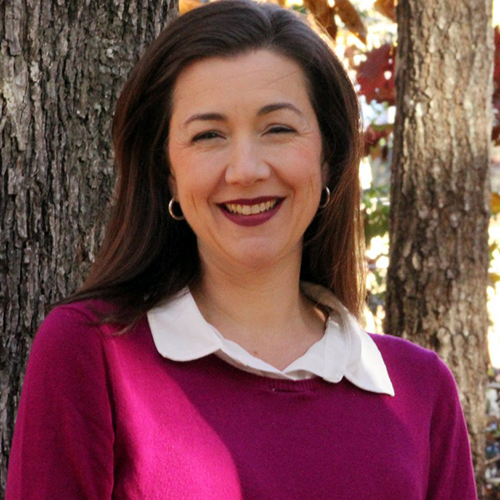




Public School vs. Homeschooling: The Apples and Oranges of Childhood

A psychological assessment I recently filled out for one of my children showed a clear bias towards public schooling with these kinds of queries:
- “Do they stay seated when asked to remain in their seat?”
- “Are assignments turned in on time and complete?”
- “Do they follow directions without additional prompting?”
As both the parent and teacher, I had a lot of questions to answer. Some were almost impossible because I had no knowledge of my child in a traditional school environment. We’ve always homeschooled, so I was making a guess.
Would they remain seated if told not to get up? Doubtful. Do I see that as a problem? No, not really.
It wasn’t long after I completed those questionnaires that I happened upon an article by my favorite psychologist, Peter Gray. Its title, Developmental Psychology’s Marriage to the School System, caught my eye since I was informed that my child tested on the low-normal range of cognitive development and showed other cognitive issues.
Of course, this is a child who has never had to parrot back information on demand or stay in a seat even though they wanted to get up. That hasn’t been their experience of the world.
Gray outlines five ways which the school environment creates a distorted view of child development and psychology. Here is his list of school characteristics and how they differ from a homeschool experience.
1. Adult Direction
School is a place of constant adult direction. Children are told what time they should arrive, when they are allowed to leave, how long to spend on each task, when they can eat, when to go to the bathroom, and what they must be focused on every moment of the long school day.
Compare this environment to homeschooling, where a child can sleep if they’re tired, eat when they’re hungry, go to the bathroom when needed, and be interested in the Civil War even if the state standards say they’re to study the American Revolution this year.
2. Work Versus Play
School explicitly delineates between work and play. Math class is not play; it’s a time for you to pay attention and stay in your seat. Recess, if you have one, is playtime, but even that can be micro-managed by adults.
“Play is the work of a child.” ~ Maria Montessori
Homeschoolers instinctively mix work, life, and play. When there is no artificial separation of work and play, learning can be effortless. Knowledge doesn’t have to be dispensed in the form of a worksheet to “count.” A family game can teach math skills just as well as (maybe better than!) a workbook.
3. Norms, Rankings, and Measurements

Measurements and norms are the areas where I think the co-dependent relationship between school and child psychology is most apparent.
Anecdotes are not a reliable measure for research or public funding; therefore, education and child psychology need each other. Could one exist without the other?
The schools need the tests and norms provided by the psychologists, and the psychologists need the research subjects. We then use these tests and standards to categorize children into different groups—the labels of which are nearly impossible to escape.
In homeschooling, a child has the luxury of just being who they are, where they are. They can continue working on a skill until they master it. They aren’t subjected to daily tests and assignments ranking them against every other child. There isn’t a “norm” demanded on a given day in a particular grade.
4. Age Segregation
Age segregation is the most defining element of school. Age determines when they must begin and age determines when they are free of compulsory attendance. Age determines what grade they are expected to be in and what tasks they are expected to perform.
This age segregation also contributes to bullying and extended adolescence. It creates a vacuum in which peer pressure determines what is acceptable and what is not.
Homeschooling doesn’t rely on age segregation for its function. Children spend their time with everyone from their grandparents to their newborn sibling, and doesn’t this resemble the “real world” more than a group of thirty 12-year-olds ever will?
5. Competition
School is a place of constant competition. From class rankings and grade point averages to being chosen as the lead in the play and making the football team, everything is a competition.
Now many will say that this is real life and that competing is good, but I find this to be a chicken and the egg argument. Do you believe that because life really is a series of competitions, or because you were conditioned by schooling to view everything as a competition?
Within a family, of course, there can be some inherent competitiveness, but ultimately cooperation rules. Choices must be made about the allocation of time and resources, and everyone’s desires are considered.
We don’t pit sibling against sibling and choose a victor each day. We look for ways to help and encourage everyone. Grit can be taught through collaboration and perserverance instead of through winning and losing.
The Apples and Oranges of Childhood
Institutional schooling and child psychology view all children as apples, and they’re treated similarly. Sorted and graded, some are chosen for the holiday gift box, and others are discarded, fit only for juice.
As homeschoolers, we have apples, but we also have oranges, lemons, peaches, and pineapples. No two are the same, and we don’t value an apple more than an orange.
So as I hear the conclusions of the psychologist, I trust my own instincts and doubt the “expert.” How can I expect my child, who has never spent a day in school, to be accurately judged based upon studies of children in a place of extremely limited freedom?
I can’t; they’re apples and oranges.

About the Author
Bethany is the mom of six always homeschooled children who one day realized she’d lost herself in the process, probably under a pile of laundry. Her eclectic style of relaxed homeschooling draws upon classical to unschooling methods and everything in between.
While homeschooling her children, teaching at a Project Based Co-op, and writing about learning outside of school, she still tries to find time to read a book, drink coffee, and pay the bills. Read more from Bethany on her site BethanyIshee.com: Real inspiration for the authentic mom.
